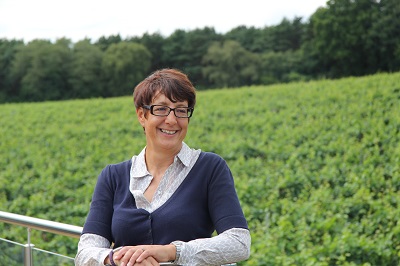Leadership & Strategy
Article
How to find work-life balance in family businesses

Setting up a business with your family can seem like a great idea. There’s a mentality of togetherness, and the opportunity to save on startup costs if you work from home. But family businesses come with a unique set of challenges, too.
In family businesses, differences in opinion can wreak havoc on both family and business relationships. For family members, switching off at the dinner table can seem impossible – for non-family members, conflict can be isolating and make them feel like outsiders.
Before starting up, it’s important to know what you’re letting yourself in for, so you’re fully prepared and can work to make a success of your venture.
Joining the family business
For Sam Linter, the daughter of two vineyard owners from West Sussex, joining the family firm wasn’t the original plan.
She grew up surrounded by vines, picking and pruning as soon as she could reach the leaves, but she had a different career in mind. It was only when she had two small children – and a grandma keen to see them more – that she found herself back at the family business.
In the mid-90s, she took over winemaking at the family-owned Bolney Wine Estate, a position previously filled by a consultant.
“We put a small winery in,” she said, “and I went off to college to learn how to make it.”
Growing business – and embracing change

Her addition to the team helped to transform the business. They were able to buy more land and increase production because they had more control over what they were doing on site.
Linter is now managing director of the business, but she’s the first to admit that it wasn’t an easy path. Business conversations with her father, the “patriarch” of the family firm, were particularly challenging.
“He had different ideas about how he saw us growing and expanding to the ones I had,” she said. “I imagine it’s the same in any business. There’s always going to be someone who started it who will have that definitive opinion of their vision.”
And disagreements are even trickier when it’s your own father, rather than someone from outside the family.
“It’s really difficult when you have the whole emotional issue going on as well,” said Linter. “The feeling of guilt is unbelievable. It can hold you prisoner at times.”
The bright side of family businesses
Of course, family businesses have plenty of positives. Linter emphasises the benefits of having people around you who are “100 per cent dedicated to the business”.
In the case of Bolney Estate, she works with people who have grown up around the business and know it well. Her daughter Charlotte is head of marketing, her husband is head of IT and her cousin looks after health and safety compliance.
To avoid any potential division between the family and the rest of the team, Linter tries to reinforce the idea that the wine estate is a family business. By working there, you’re a part of the extended family.
“We try to keep things relaxed, friendly and open,” she said. “I do have members of staff who are more senior than family members, but that’s never been an issue. Everyone’s treated as an equal – and if anything, I’m slightly harder on the family.”
All hands on deck
Julien Sheridan founded retail design agency Sheridan&Co alongside her husband, Michael.
It’s a real family business, with her two sons, Freddie and Bertie, daughter Minty, and – over the years – a niece and a cousin’s husband all involved in one way or another. Even her parents have helped out when they’ve needed all hands on deck.
For Sheridan, a key benefit of working with your own family is the element of trust. When her husband had a sudden quintuple heart bypass in 2013, it was nice to have “a few more Sheridans in the pool.”
The founders have no qualms about welcoming their children into the business either. The kids have been helping out during the school holidays since they were teenagers.
“They had worked in other companies, so they didn’t come straight into the business,” Sheridan said. “It happened naturally, rather than it being a strategic, organised decision. After all, who would want to work with their parents?”
Finding the right balance
The arrangement works well, but it’s not always been easy. They invested in training early on, and even tried family business therapy to help iron out the creases. Therapy was ideal when the children needed support, or the family needed to work out when similarities in their traits could cause a clash.
The positives of family businesses far outweigh the negatives though. One of the main advantages of having her children around, Sheridan pointed out, is that they always tell her and her husband what they’re doing right – and what they’re doing wrong.
“The mixture of experience and youth is a really positive one for any business. Particularly a design business which is constantly moving and progressing.”
Unsurprisingly, many family businesses struggle to keep their work and family life separate. The Sheridans are no exception.
“We are pretty hopeless on that front,” Sheridan admits. “But we do have WhatsApp groups called Work Family and Family, and we try really hard to keep the right conversation on the right trail.”
Introducing the cut-off point
The fight to separate work and family is all too familiar for Ian Thirkell. He’s the founder of Arc4Health, a company which makes a device that uses electrical microcurrents to manage pain and repair damaged tissue.

His wife Lucy and his two children, Jack and Tasha, have all been involved with the business at various stages. And while he acknowledges that it’s important for family businesses to try and separate work from home life, it’s easier said than done.
“We were all in the same house at the same time, so we weren’t able to leave work at the door,” he said. “It became part of the conversation during the evenings, which I learned is a mistake. You need to have a cut-off point.”
The importance of a wider perspective
Before his family became involved in the business, Thirkell admits it was difficult to take their opinions on board. He’d spent a long time working on his device, but he had always done it alone.
“They would come up with thoughts and ideas, which perhaps weren’t in line with the entrenched views I’d developed over a number of years,” he said.
“It was very difficult for me to broaden my horizons and look at things from a wider perspective – the ones that they were bringing to the business. Once I realised that it was all constructive, it became much easier for me to accept their input.”
For Thirkell, it wasn’t just other perspectives that presented challenges either – he had to accept his own limitations, too. His previous job was with the Met Police, so he lacked a technical or business background. Two years ago, he realised he needed a more experienced business mind to take the company forward, and recruited a CEO who wasn’t part of the family.
Naturally, Thirkell said, if you’re going to put the family firm in the hands of an “outsider”, it’s essential that you believe in them.
“He’s an absolute dynamo and has a wealth of knowledge and experience. He’s as excited for the future as I had been in previous years. That’s made it a lot easier for me.”
Read more articles about growing your family business.